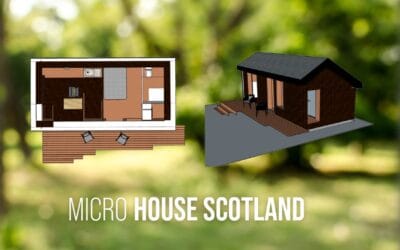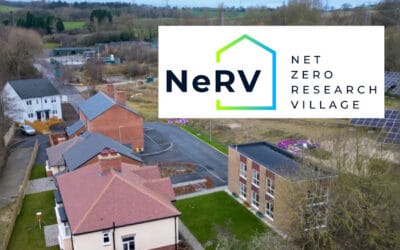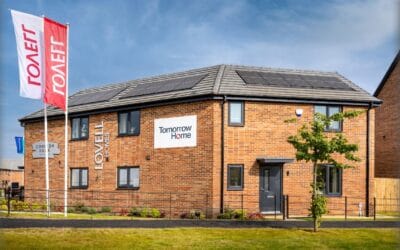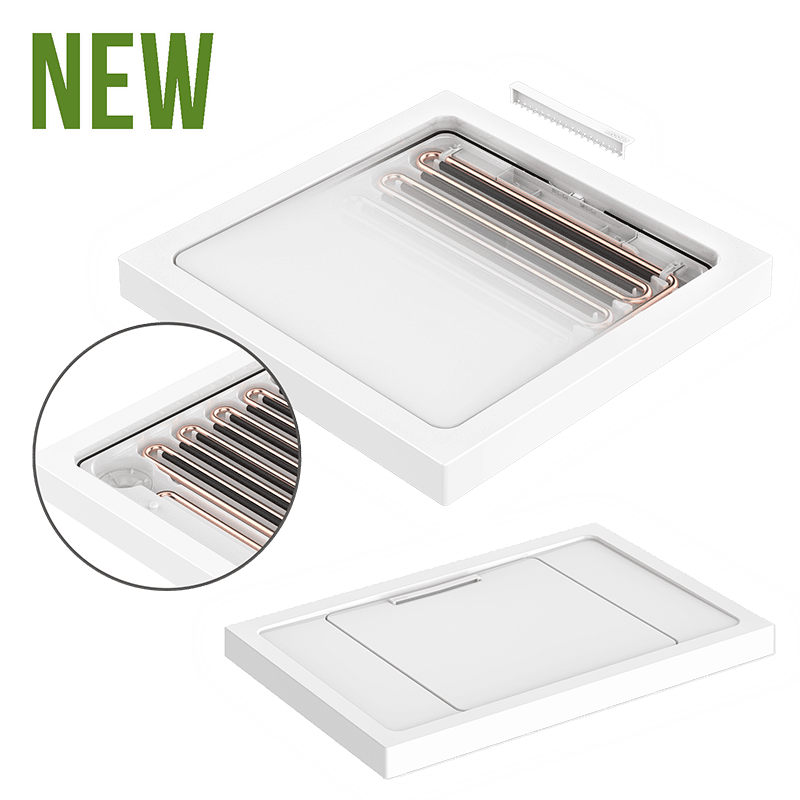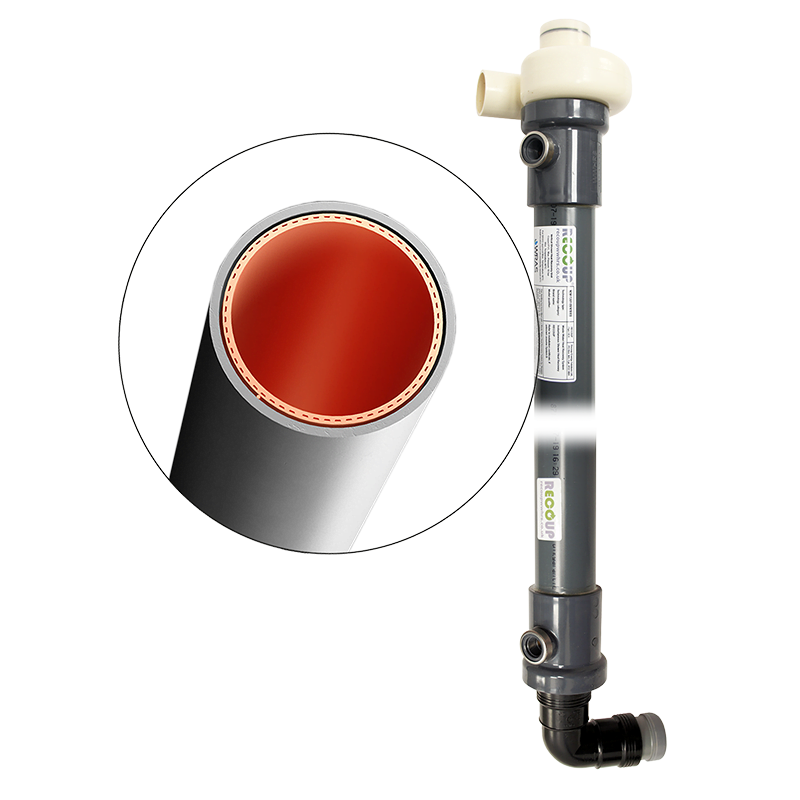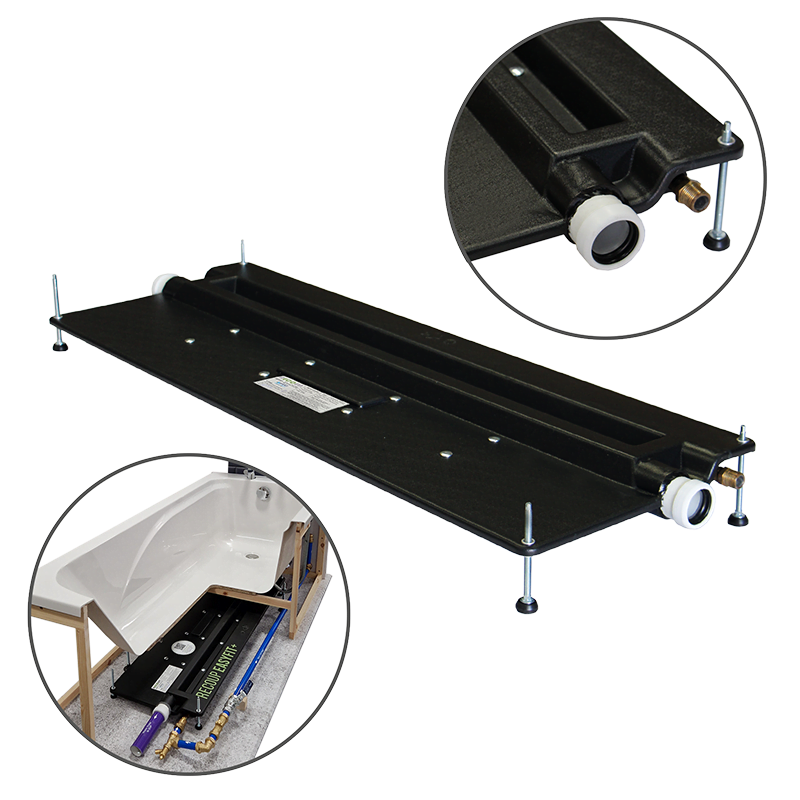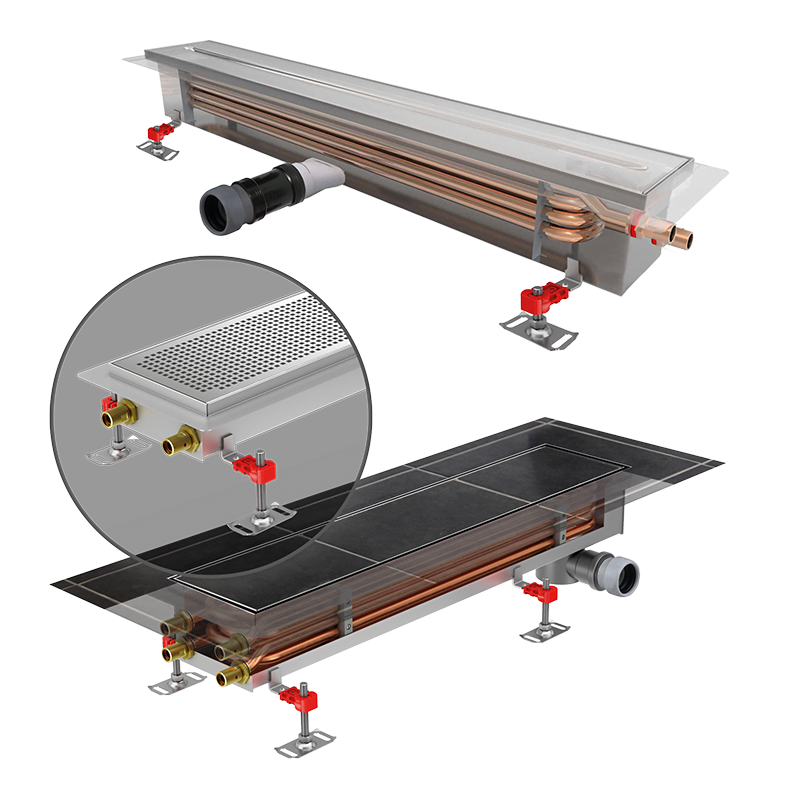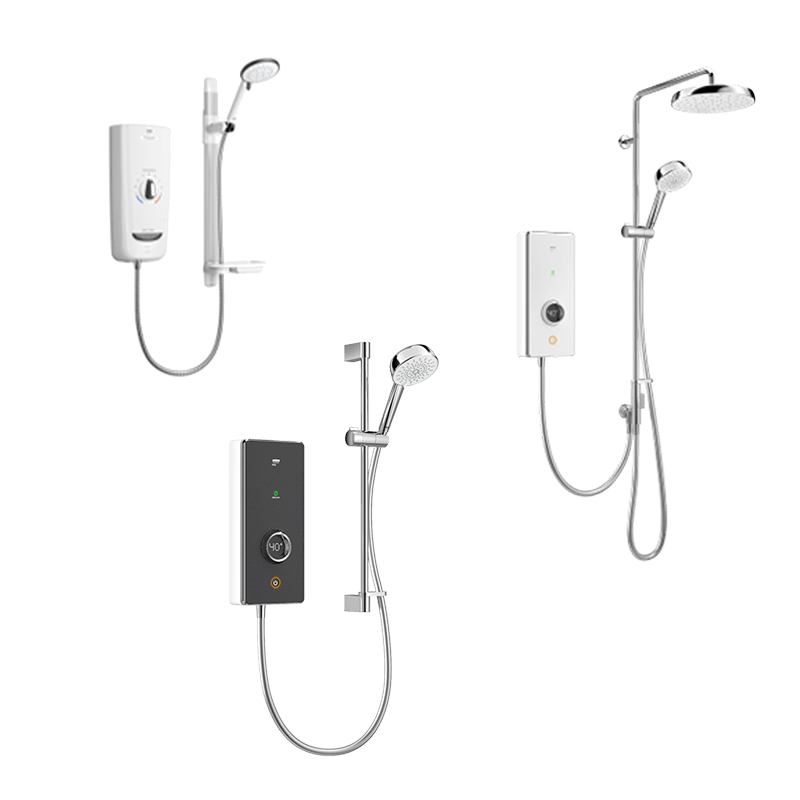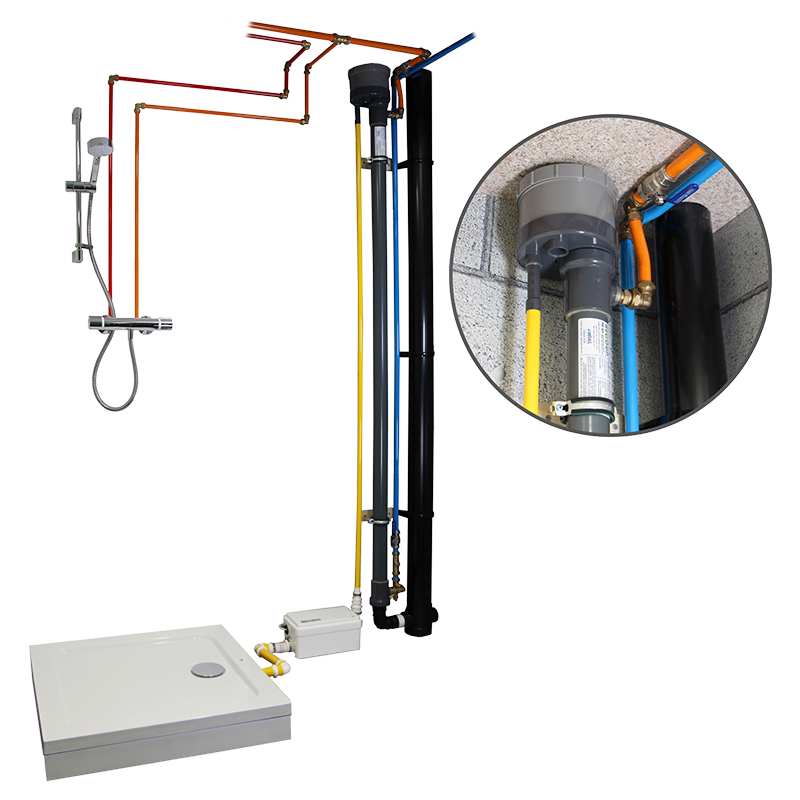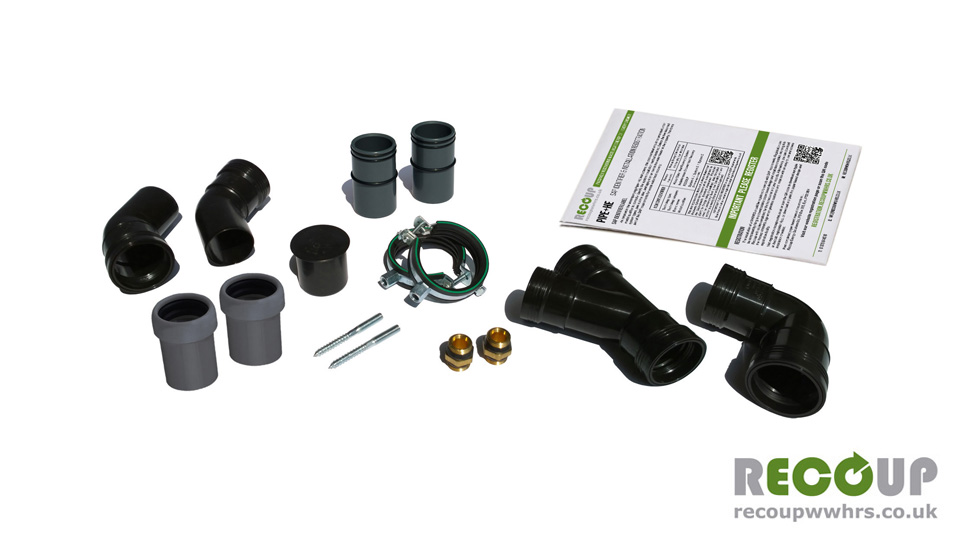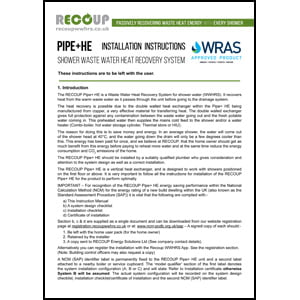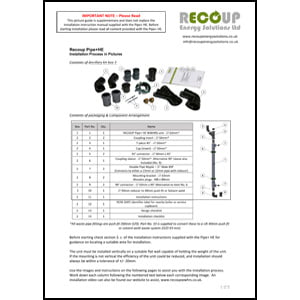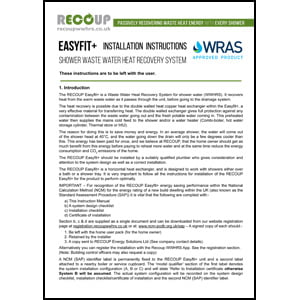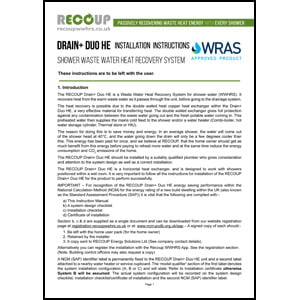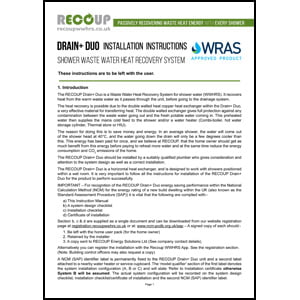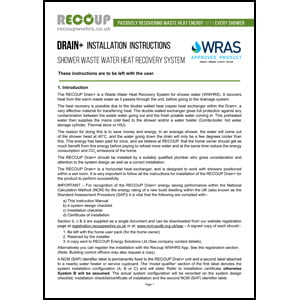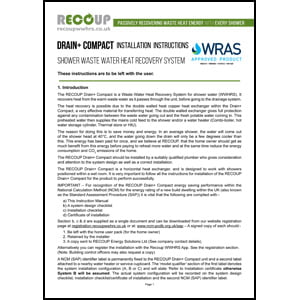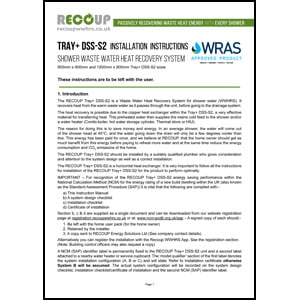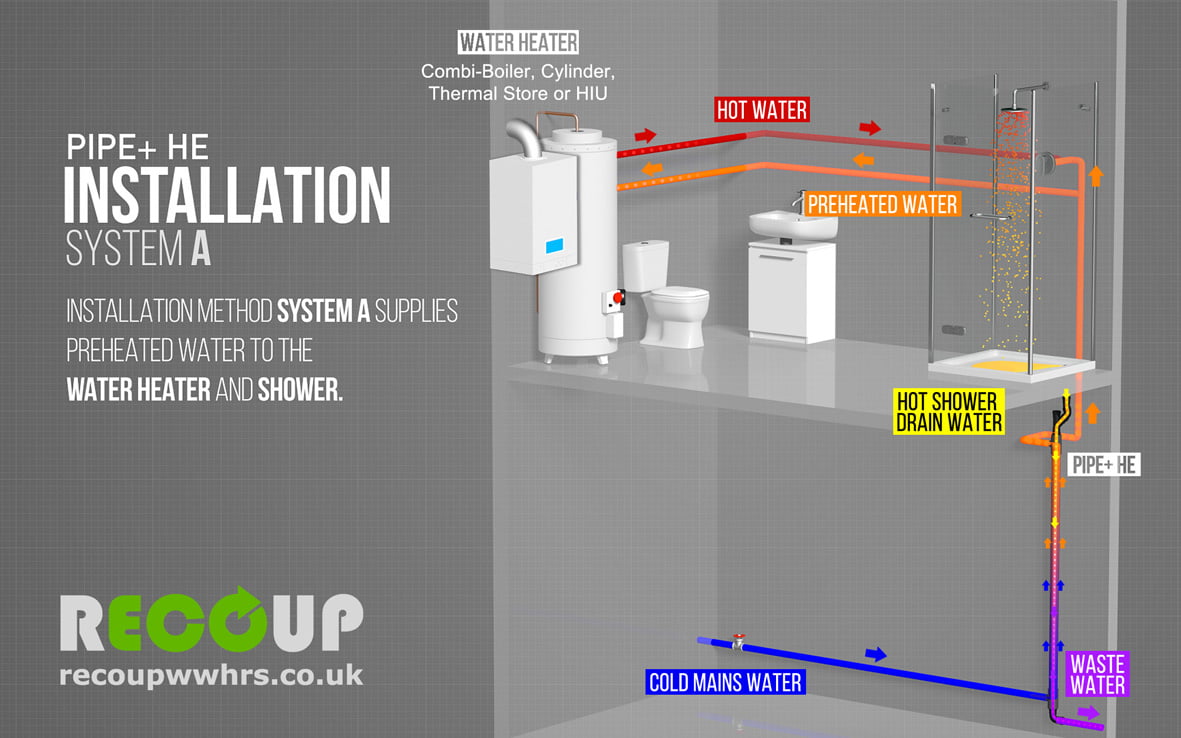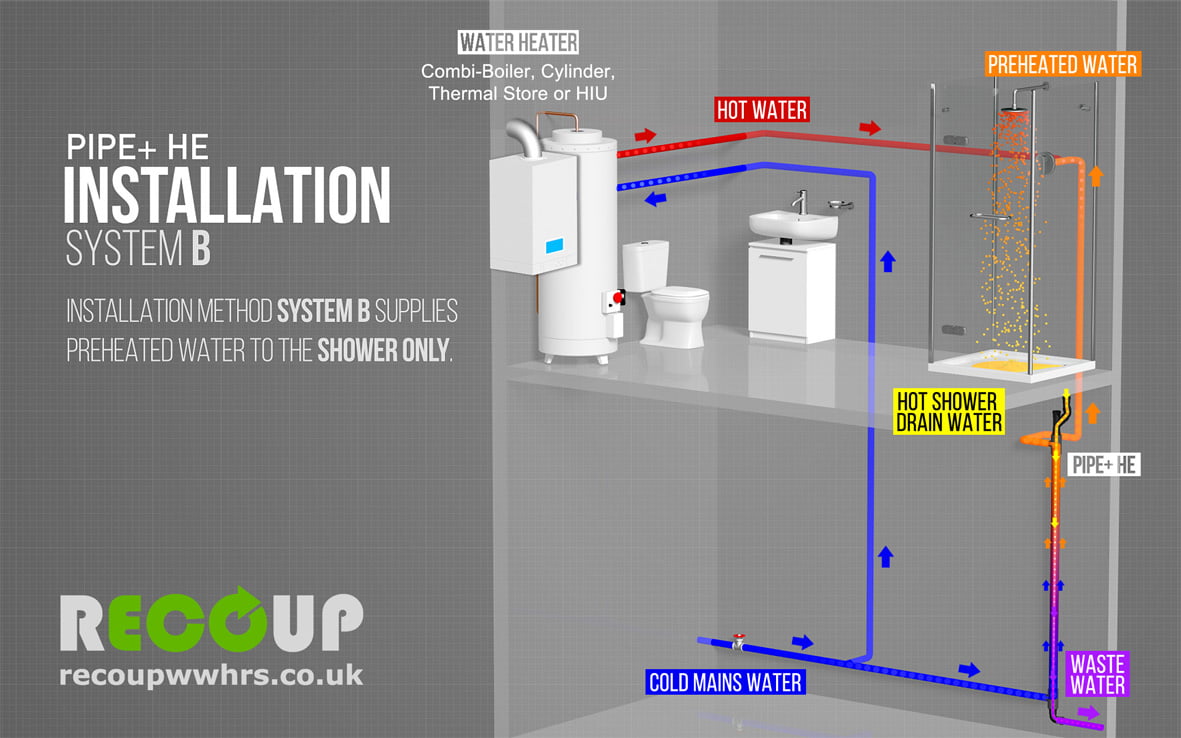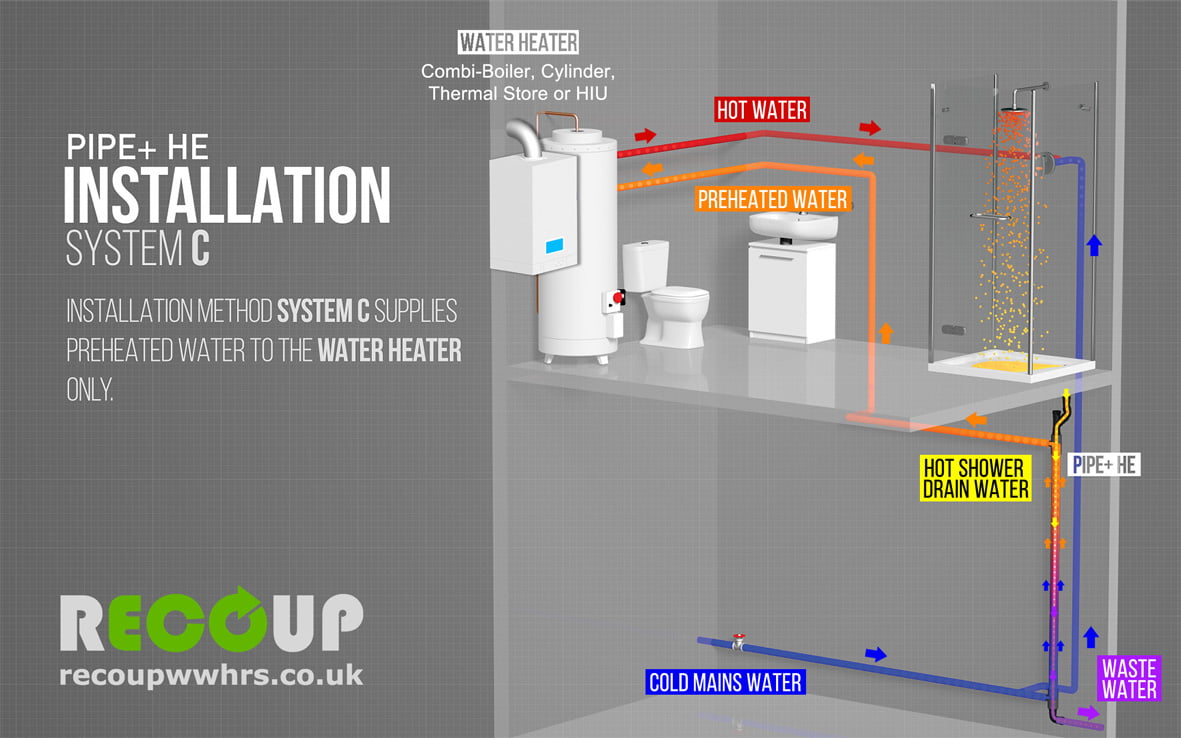Waste Water Heat Recovery for Showers
Gilden Park Sports Pavilion, Harlow
Building Greener Leisure Spaces with WWHRS Technology
At the new Gilden Park Sports Pavilion in Harlow, Recoup’s Drain+ Duo HE Waste Water Heat Recovery Systems (WWHRS) are turning everyday showers into a source of energy efficiency. By capturing heat from waste shower water, the installation considerably reduces hot water energy demand, helping the pavilion meet its long-term sustainability targets from the outset.
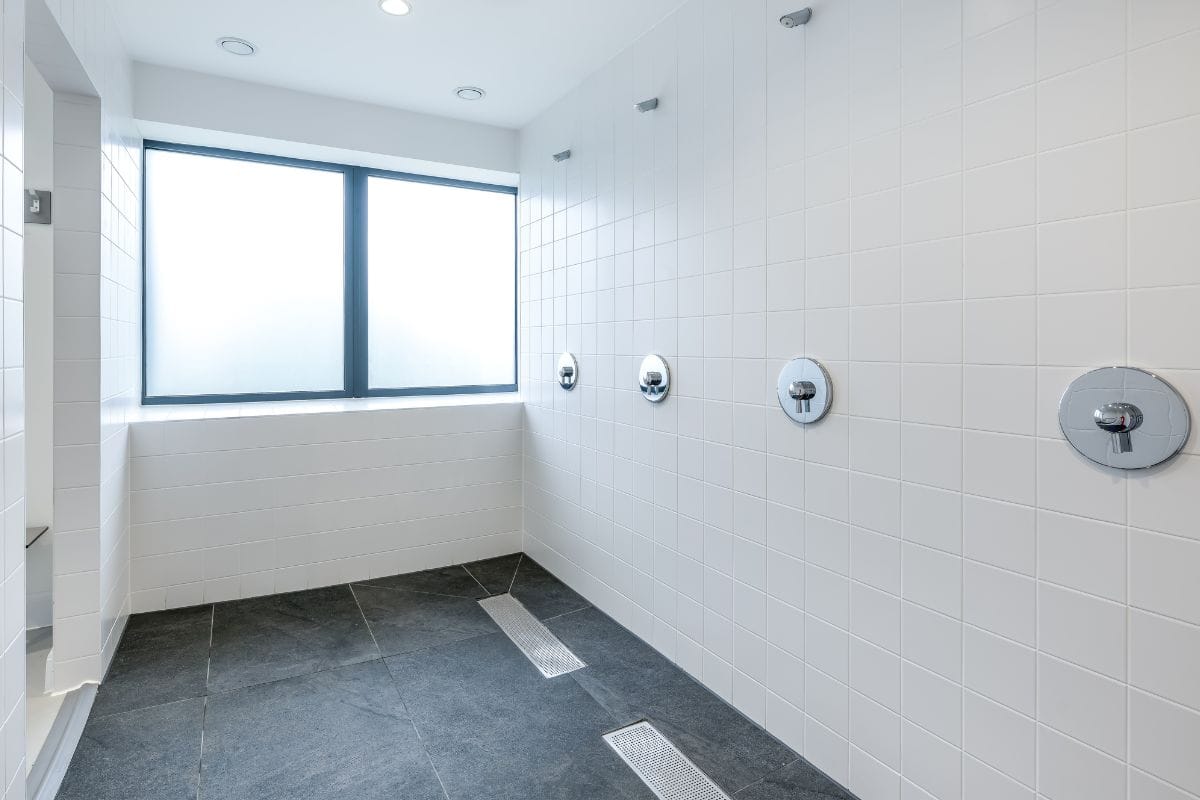
Delivering Sustainable Design Through a Section 106 Development
The Gilden Park Sports Pavilion is a new community facility designed to set a benchmark for sustainable, energy-efficient public buildings. Delivered under a Section 106 (S106) planning agreement connected to the wider Gilden Park housing development, the project was funded by the Taylor Wimpey, Barratt Redrow and Persimmon Homes Consortium and built by Boom Construction (UK).
The S106 agreement required the delivery of a high-quality community asset that would bring lasting social and environmental value. By integrating Recoup’s Drain+ Duo HE WWHRS into the design, the pavilion demonstrates how planning commitments can translate into practical, measurable carbon and energy reductions to create a facility that benefits both residents and the environment.
Built over a 52-week programme alongside the new Gilden Park Community Centre, the sports pavilion provides modern, high-quality facilities for local sports clubs, schools and residents. The development includes well-equipped changing rooms, landscaped outdoor spaces, and sustainable building technologies that together create a welcoming, low-impact environment. The project forms part of a wider effort to enhance the local area with accessible community amenities that promote active lifestyles and social wellbeing.
From the earliest stages, the project team focused on lowering operational carbon. Installing 12 Recoup Drain+ Duo HE systems across the communal shower areas formed a key part of that strategy, improving hot water efficiency and long-term sustainability performance.
With the WWHRS now operational, the pavilion will deliver consistent energy and carbon savings every time the showers are used, creating a tangible sustainability legacy for the local community.
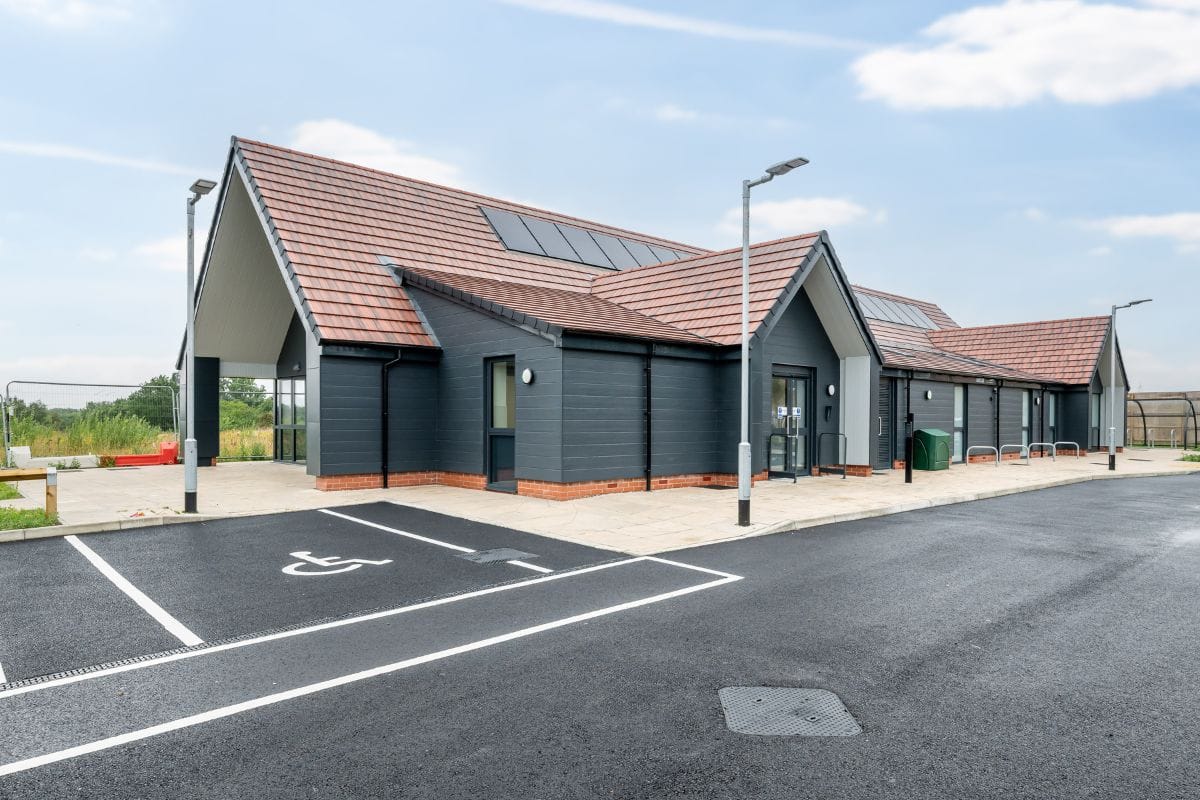
WWHRS for High-Use Shower Facilities
Sports pavilions, leisure centres and gyms are among the most suitable environments for WWHRS. At Gilden Park, the communal showers are arranged in banks of five, each served by three Drain+ Duo HE units installed beneath the floors. Typically, one Drain+ Duo HE can effectively serve up to two showers simultaneously, or form part of a shared system, such as Gilden Park, across a bank of 4-6 showers, depending on flow and layout.
Up to 90% of shower heat energy goes down the drain. Each system captures the heat energy from the waste shower water as it drains away and uses it to preheat the incoming cold feed via a high-efficiency heat exchanger. This process lowers the demand on the water-heating system and reduces domestic hot water (DHW) energy consumption by up to 55%, depending on flow rate and configuration. The Drain+ Duo HE is Recoup’s highest performance Drain+ WWHRS, a range specifically designed for wet room and multi-shower environments.
“By integrating the Drain+ Duo HE system in the communal showers at Gilden Park, we’re not just installing a piece of equipment; we’re embedding sustainable performance into the everyday operation of the building,” says Phil Peters, Senior Public Health Engineer at RHB Partnership, responsible for the mechanical and electrical engineering design work on that development. “The efficiency gains go beyond headline savings; they enhance hot-water resilience, reduce carbon, and support long-term operational value for the facility.”
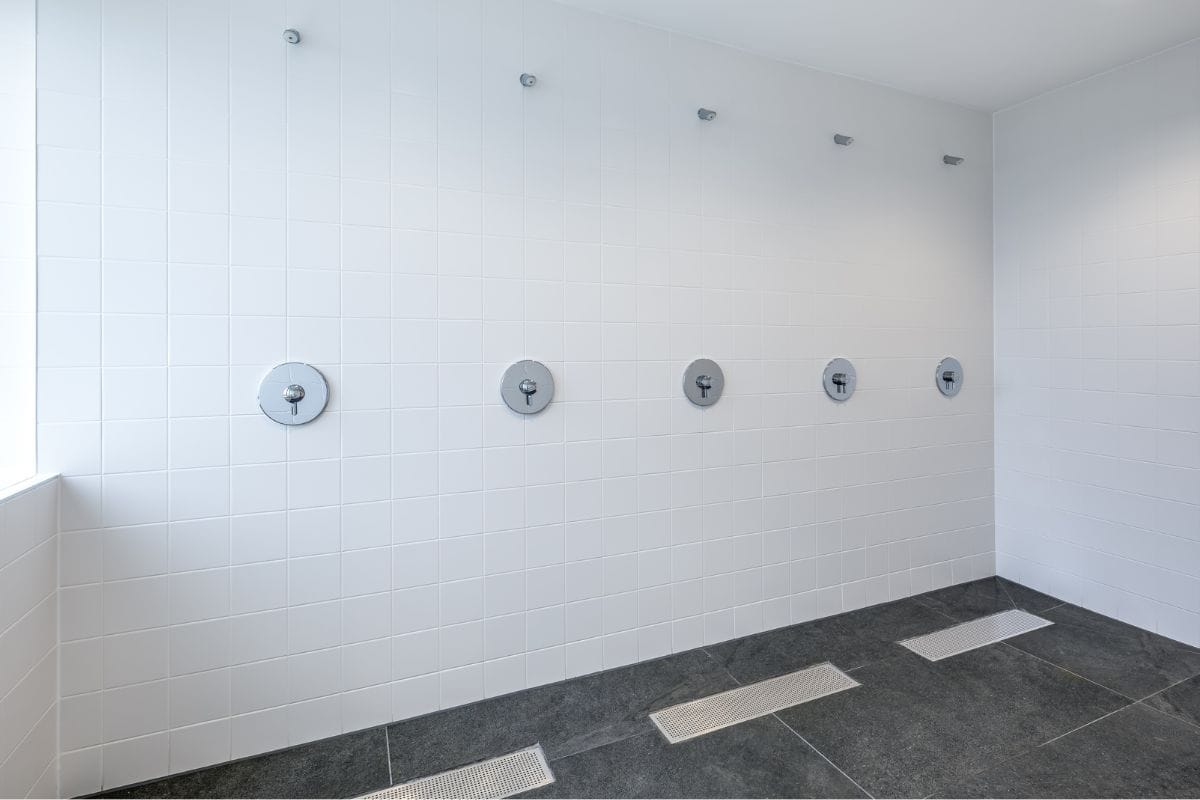
The communal showers at Gilden Park Sports Pavilion, are arranged in banks of five, each served by three Drain+ Duo HE units installed beneath the floors.
Low-Carbon Hot Water in the Leisure Sector
In the leisure sector, where hot water demand is high and consistent, WWHRS is one of the most effective and reliable ways to improve efficiency, cut carbon, and reduce facility running costs. Saving up to 55% on showers that are used multiple times a day has a significant cumulative impact. Other projects like Gym Box Farringdon (linkable case study) have demonstrated how multi-use showers with WWHRS can achieve ROI within a year and then save thousands of pounds on an annual basis.
Unlike many renewables, WWHRS is fully passive, requiring no planned maintenance, power input or user interaction. For high-use facilities such as Gilden Park, this technology provides consistent performance during peak times, helping operators to lower running costs, reduce carbon emissions and meet demanding sustainability targets.
The project stands as a replicable model for other public or leisure-sector developments seeking to balance efficiency, reliability and community impact.
Future-Ready Hot Water Performance
Looking ahead, as SBEM (Simplified Building Energy Model) looks to improve the energy performance of non-residential properties, WWHRS will make a significant impact on projects that incorporate showering facilities. Facilities such as sports pavilions, leisure centres and gyms will be able to use WWHRS to assist in achieving compliance and improving the performance of the buildings’ hot water use.
With Recoup’s Drain+ Duo HE WWHRS, developers and designers can future-proof their projects for both regulatory compliance and real-world performance, reducing energy use today while building resilience for the low-carbon buildings of tomorrow. Learn more about WWHRS and non-residential projects.
More Case studies
The Micro House Scotland Project
Waste Water Heat Recovery for ShowersMicro House Scotland is a pioneering self-build project by scientist and engineer Neil, who set out to prove that small-scale building doesn’t have to mean compromising on comfort or performance. His vision was to create a highly...
Scaling Retrofit for Net Zero: The Role of WWHRS at NeRV
Waste Water Heat Recovery for ShowersDecarbonising the UK’s existing housing stock is one of the country’s biggest challenges in meeting its 2050 net-zero targets. Recoup Energy Solutions and the Net Zero Research Village (NeRV) are tackling this challenge by testing...
The Lovell Tomorrow Home featuring Recoup Pipe HEX
Waste Water Heat Recovery for ShowersRecoup’s shower waste water heat recovery system (WWHRS), the Recoup Pipe HEX, has been included in another leading housebuilder trial. This time for Lovell as part of its eco-friendly comparison trial at Cornish Park in...

